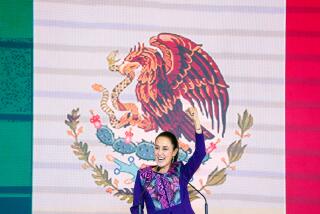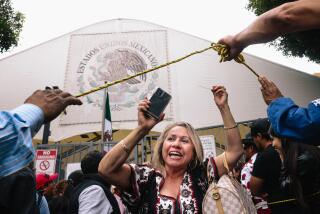Many Latin American consulates in L.A. are led by women. #MeToo is just one reason why
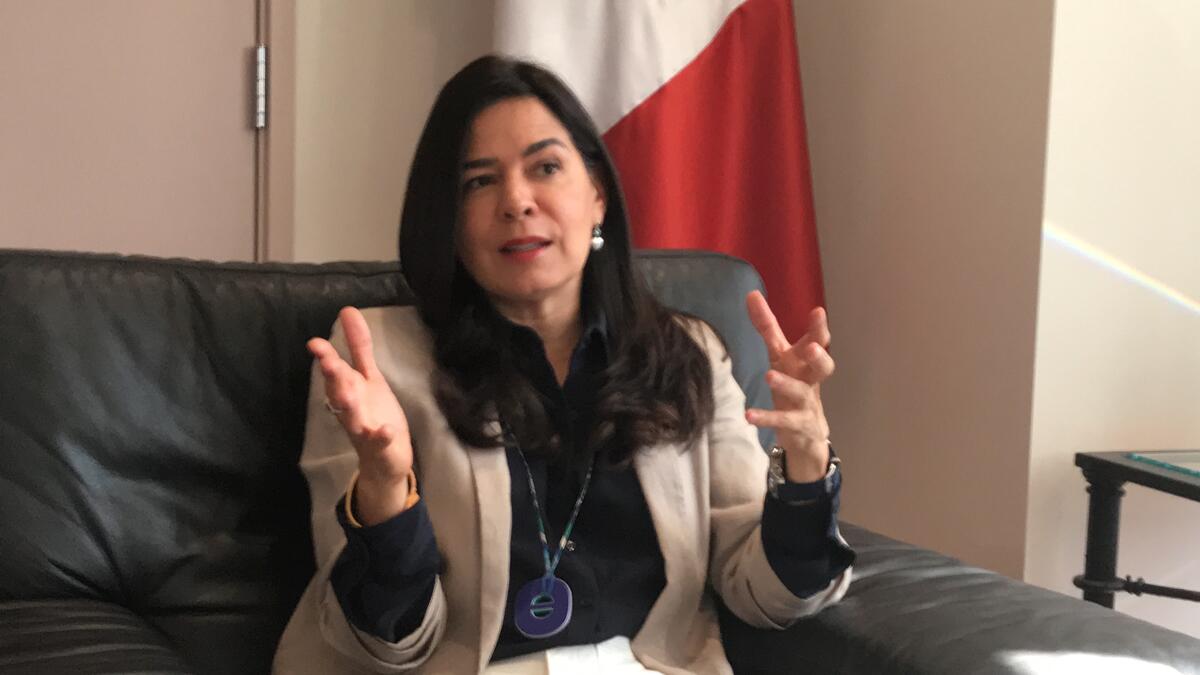
- Share via
Since the #MeToo movement went viral in 2017, the voices of Latin American women have been amplified across politics, culture and society at large.
Now Latin women are making their presence felt in another arena where they’ve been historically underrepresented and underserved: international diplomacy.
That shift is highly visible in Los Angeles, where the consulates of seven of the 16 countries that make up the Group of Latin American Consuls (GRULAC, in its Spanish acronym) are being led by women — the first time that so many Latin women have served simultaneously in that capacity here. In the case of Ecuador, a woman’s appointment in 2018 ended 122 years of men dominating the post.
“It is a conquest. It reflects the position of women in our Latin American societies,” said Marcia Loureiro, consul general of Brazil for the last two years.
When Loureiro arrived in Los Angeles, she had only two Latin female counterparts — the consuls general of El Salvador and Costa Rica. In 2018, they were joined by the representatives of the Dominican Republic and Ecuador.
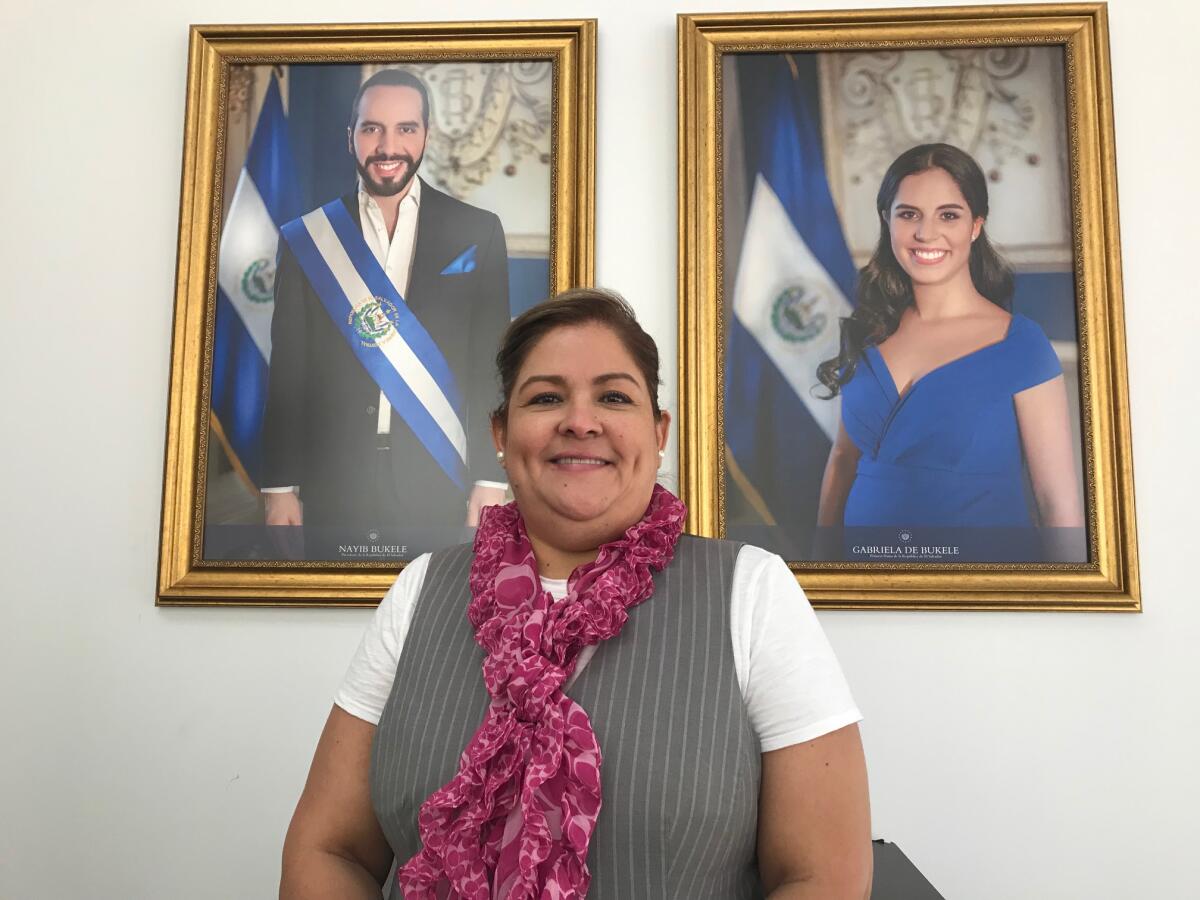
In 2019, between June and October, more female diplomats were posted to Los Angeles. At the El Salvador Consulate, one woman left and another took her place. At both the Mexican and Honduran consulates, women were appointed to replace men.
Celia Lacayo, professor of sociology at UCLA, said that these changes are a response to a quickening global push for gender equality.
“Now [that] the news is global, the women’s movement is also global,” Lacayo said. “We are seeing that [Latin American] societies are finally understanding the importance of representation.”
Los Angeles is a nerve center for international diplomacy, home to 103 consulates, only slightly fewer than New York City. The appointment of a consul general is made by the chancellor of each country with the approval of the president.
The city’s Diplomats Row is Wilshire Boulevard, where several Latin American consulates are clustered. Paraguay, Bolivia, Nicaragua, Honduras and Ecuador are near the intersection with Normandie Avenue. El Salvador sits two blocks west of Vermont Avenue. Farther west along Wilshire lie the consulates of Costa Rica, Argentina, Colombia, Chile and Brazil, in the Beverly Hills area.
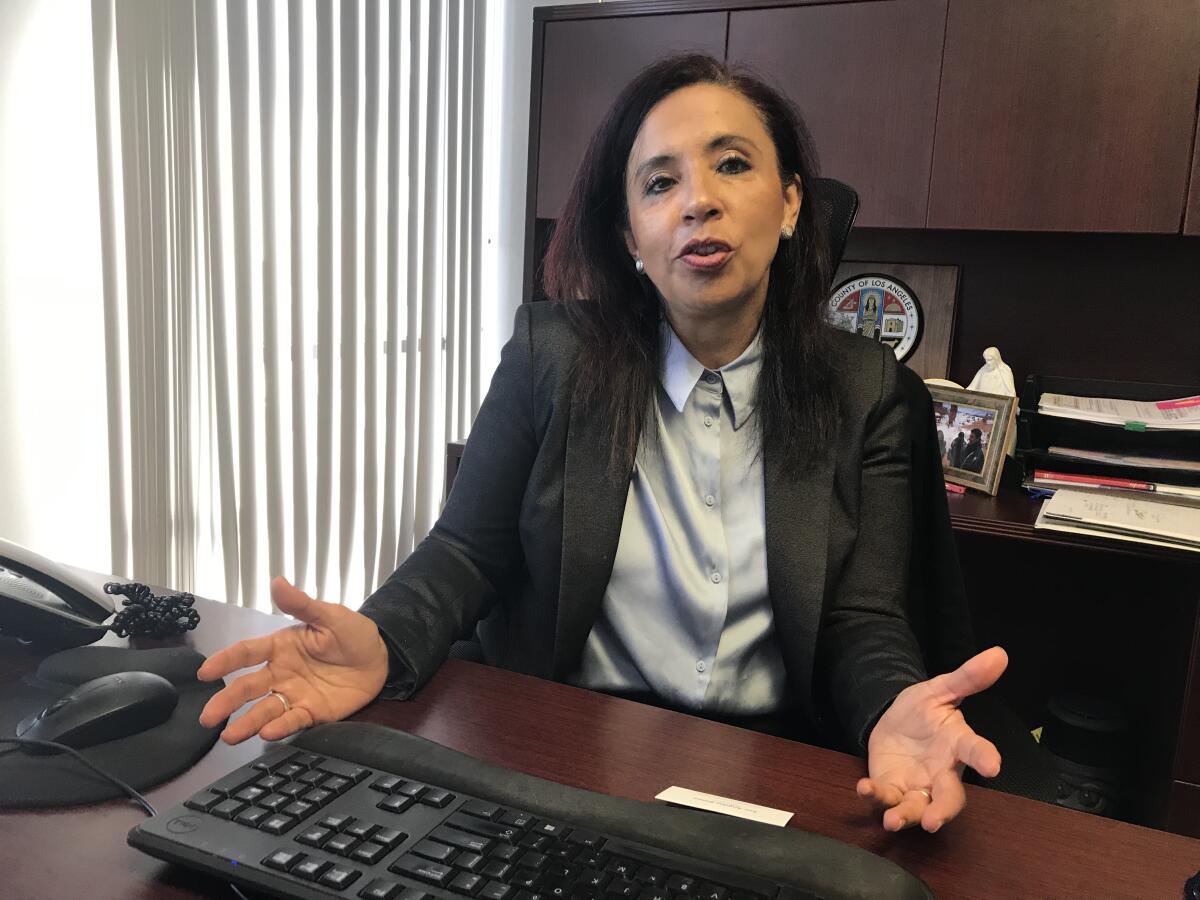
The largest Latin consulate is Mexico’s, a five-story building next to MacArthur Park where 150 people work. The smallest is Costa Rica’s, with only three employees, including the consul general.
Several factors besides the #MeToo movement explain why so many Latin American female diplomats are landing in Los Angeles. One is better access to higher education for women in some parts of Latin America. Another is the changing face of immigration to the United States; rather than of predominantly single men, the faces of immigrants in recent years are those of mothers and their children.
Yet another significant factor is that, across the hemisphere, more women have been accruing power as heads of state. Laura Chinchilla became Costa Rica’s first female president in 2010. In Argentina, populist president Cristina Fernández de Kirchner held power from 2007 to 2015, and recently won election as her nation’s vice president.
Dilma Rousseff served as Brazil’s first female president from 2011 until she was impeached and removed from office in 2016. Chile’s Michelle Bachelet served nonconsecutive presidential terms, from 2006 to 2010 and from 2014 to 2018.
L.A.’s female Latin American diplomats bring a wide variety of backgrounds and skill sets to their jobs. Before entering the diplomatic corps, Ivonne Guzmán was a renowned journalist who wrote about culture, art and history for the Ecuadorian newspaper El Comercio, where she worked for a quarter-century as a reporter, editor and columnist.
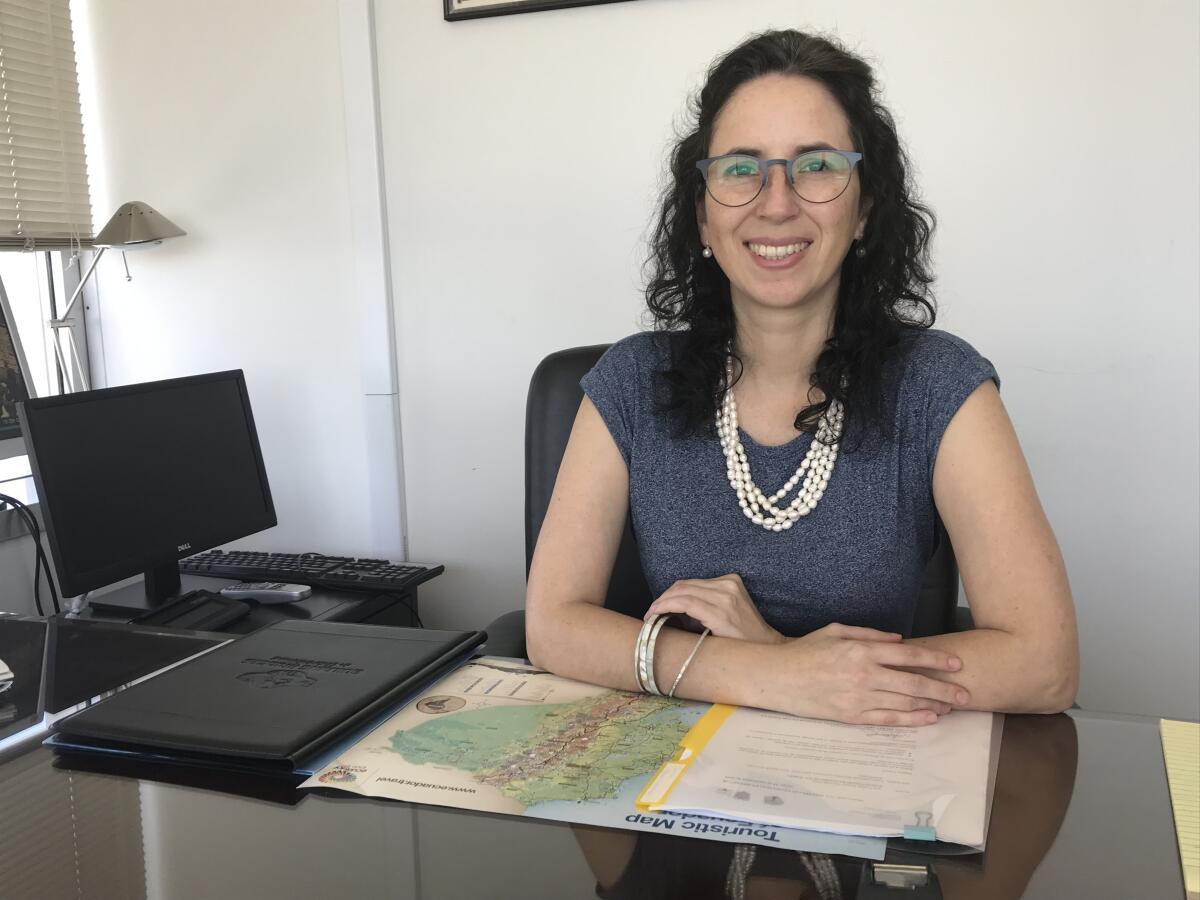
But in September 2018, President Lenin Moreno appointed Guzmán, 45, to be the first woman in charge of the Los Angeles consulate — which has operated in the city since 1896 — after 122 years of male control. She doesn’t view her appointment as either fortuitous or as an isolated decision.
“I think it has to do with what I have done, with what I have contributed to society,” said the native of Guayaquil, who now conducts diplomatic relations, wields elaborate notarial powers, signs checks and visits immigrant detention centers, among other tasks. “I want to take advantage that I am a woman, I can play a good role and leave a precedent for more women to come here.”
The duties of consuls general vary, but adhere to certain core principles. The Vienna Convention on Consular Relations, signed on April 24, 1963, by members of the United Nations, establishes that the main function of a consulate is to protect its nationals “whether they are natural or legal persons, within the limits allowed by international law.”
Consular offices encourage the development of commercial, economic, cultural and scientific relations between the sending nation and the receiving nation; consulates also are entitled to issue passports and travel documents, among other functions.
Some analysts believe that the presence of more women in diplomacy, and in particular in the office of consul general, is more symbolic than substantive.
Suyapa Portillo, professor of history and transnational studies at Pitzer College, said that having a group of female consuls has little bearing, because their job is simply to carry out the policies and procedures of their home governments, not conduct diplomacy.
“Being a woman [in that position] is only half the battle. In my opinion, they have no power; they are only mobilizing the policy of one country, they are not negotiating relations between one country and another,” Portillo said.
“The point of having a woman in a position of power is to make changes,” she added. “We want answers to the abuses that immigrants are experiencing, and on this topic very little is being heard. It’s good that they are women, but representation is not everything.”
Raúl Hinojosa, an authority on immigration who has taught political science in UCLA’s Department of Chicano Studies, takes a different view. He believes that having seven women in the offices of Latin American governments in Southern California “definitely indicates a very profound change.”
That change, he thinks, is being driven in part by shifting immigration patterns that are pressing Latin countries to recruit more women into public administration, including diplomacy.
“Interestingly, we do not see these changes in the United States,” said Hinojosa. According to the State Department, the U.S. diplomatic officials who run embassies and consular offices in Latin America are mostly men (75%). There are 20 ambassadors and chargés d’affaires who represent the interests of the United States in the region.
“In a way, the most abrupt changes are occurring in migrant-sending countries, which have mobilized a stronger transformation,” Hinojosa continued. “In general, it is a very positive signal, it is recognition of the ability of women, not only of their intellectuality, but also of their compassion, something that is very important in diplomacy.”
Whatever the reasons for it, the transition is changing the balance of gender power. Mexico and Brazil, like Ecuador, have reversed decades of history in which their L.A. consulates were dominated by men. The first Mexican woman to serve as consul general in Los Angles, Martha Lara Alatorre, held that position from 2001 to 2003 — after men had occupied that office ever since its inception on Aug. 2, 1886.
For Brazil, the wait was 66 years, until Thereza María Machado became the South American nation’s first female consul general in L.A. in 2005.
Brazil’s current consul general, Loureiro, is only the second woman to hold that position since the office was opened in 1939. Originally from Rio de Janeiro, she graduated in 1986 from the Rio Branco Institute in Brasília, and has held several different diplomatic positions. But she had to wait more than 30 years before being named consul general.
Now, other women are matching her example.
“Each advance is the result of a mobilization,” she said. “It is important that the perception of progress does not forget what is still to be conquered and that the momentum of this mobilization does not stop,” Loureiro said.
The Rio Branco Institute, founded in 1945, is the second oldest diplomatic academy in Latin America, where Brazilian ambassadors and consuls are trained and developed. In the last five years, on average, 29% of its student enrollment has been female, according to figures provided by the local consulate. In line with that pattern, only 23% of Brazil’s diplomats and 19% of its ambassadors are women.
Those percentages have persisted even as women’s academic access is increasing. A report of the International Labor Organization, presented in Peru in August, highlights that, among working women born in 1990 in Latin America and the Caribbean, 40% have a university education, while only 25% of men do.
Yet according to that report, titled “Women in the World of Work — Pending Challenges Towards Effective Equity in Latin America and the Caribbean,” women still earn 17% less than men.
Miguel Tinker Salas, professor of Latin American Studies at Pomona College, said that stubbornly patriarchal systems still keep women, including diplomats, at a workplace disadvantage.
“The value of women’s work is despised and the predominance of men’s work is established as the basis against which every person who is employed is judged,” Tinker Salas said. “The people who make the decisions are still men and, therefore, discrimination continues.”
But change is accelerating at consulates such as Costa Rica’s, where all three of the last consul generals have been female career diplomats: Sylvia Ugalde, Xinia Vargas and, currently, Mabel Segura.
Segura, 53, a lawyer by profession, said that women’s growing presence in diplomatic work reflects “a policy of openness and nondiscrimination.”
“It has helped a lot that the country has had a very solid democracy for years,” she continued. “The presidential changes, the political changes, have been calm.”
Mexico also is opening diplomatic doors to women under its leftist-populist president, Andrés Manuel López Obrador, who has placed women at the head of 50% of cabinet secretariats in the federal government.
Abroad, he appointed Martha Bárcena as Mexican ambassador to the United States. López Obrador also sent women to several of the most important consulates, in Los Angeles, Chicago, Houston, Sacramento, Denver and Philadelphia, among others.
After 25 years in the Mexican foreign service, Marcela Celorio, consul general in Los Angeles, became the second woman to occupy that position in an office that has been operating for 133 years.
“It means that [the president] recognizes the capacity, professionalism and commitment of career officials like me, but also of women,” said Celorio, 54, a lawyer who has taught international law at the Universidad Iberoamericana in Mexico City.
“This situation was much different 25 or 30 years ago, when I graduated from college and started looking for work,” the Mexican diplomat recalled. “[People] saw you and thought you were a secretary, an assistant. They didn’t think you could be a professional and sit at the table to negotiate.”
In the case of El Salvador, President Nayib Bukele appointed a woman, Alexandra Hill Tinoco, to be the head of his diplomatic corps. Twelve of El Salvador’s 21 consulates operating in the United States are run by women.
Opening these doors has not been easy, said Alicia Villamariona, consul general for El Salvador’s L.A. office, which is the Central American country’s largest.
“Women now have more prominence,” said Villamariona, 52. In her opinion, the Bukele government “is not giving preference to women, but it is inclusive.”
Salvador’s neighbor, Honduras, has a female ambassador in Washington, D.C., María Dolores Agüero, and nine of its 13 consulates in the United States are overseen by women.
According to María Fernanda Rivera, consul general of Honduras in Los Angeles, the increase in women in these positions began in 2014, shortly after a new foreign service law that was more favorable to women took effect.
“Sixty percent of employees of the Ministry of Foreign Affairs are women,” Rivera said, who studied communications and advertising and took office Aug. 1.
Although Rivera, 33, is the youngest Latin American female consul general in Los Angeles, she has been working in diplomacy for a decade, beginning with a 2010 economic advisor posting in Atlanta. The next year she was promoted to vice consul, and in 2014 to consul general in that city.
In the beginning, when she was appointed consul general, Rivera said, she was surrounded by men, but now she feels part of a family with six female colleagues.
“I think we all deserve the same opportunities,” she said. In times past, she noted, women often had to relocate to accommodate their husbands’ careers. Now, more and more, the opposite is occurring.
Emiliana Guereca, founder of the Women’s March Foundation in Los Angeles, believes that the presence of seven consuls general is something transcendental that motivates and inspires young women.
“We had to wait 100 years,” she said, adding that it’s important to push more women to participate in politics and public administration. “It helps the young women to see their self in those positions. They can reach equality and have a voice in political life.”
More to Read
Sign up for Essential California
The most important California stories and recommendations in your inbox every morning.
You may occasionally receive promotional content from the Los Angeles Times.

